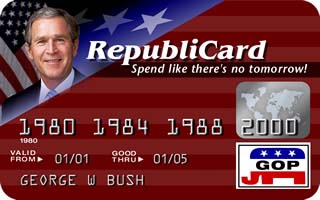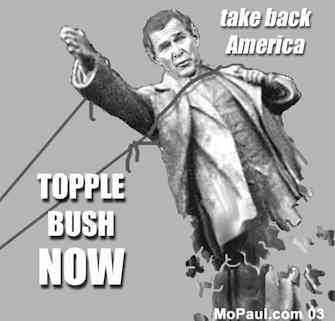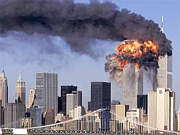 webradio
webradio (deutsch)
(deutsch) michael moore
michael moore  Mondlandungs Lüge
Mondlandungs Lüge (deutsch)
(deutsch)

 Tages-Anzeiger online
Tages-Anzeiger online

|
marcosolo, 15. Februar 2004 um 11:23:53 MEZ
Focus online - Karies soll Bush helfen 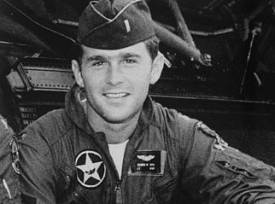
Ein Bild aus der Zeit, als Bush bei der Nationalgarde in Texas diente Nach dem Uralt-Foto, (das unterdessen vom Originalfotografen bereits als Fälschung enttarnt wurde,) mit Jane Fonda und John Kerry haben die Republikaner erneut in die Beweismittel-Kiste gegriffen - und Skurriles zutage gefördert. So soll ein zahnärztliches Gutachten aus dem Jahr 1973 beweisen, dass George W. Bush den Dienst bei der Nationalgarde nicht geschwänzt hat. Von Peter Gruber, Washington. 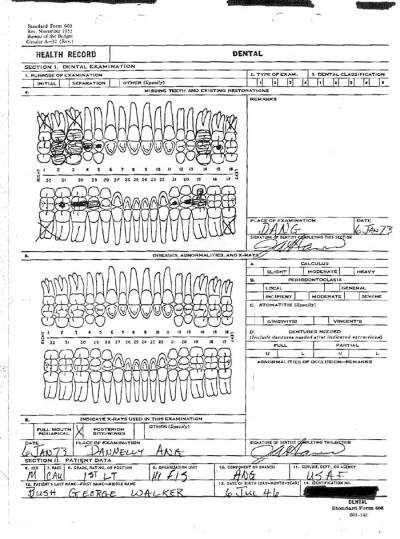
In Bushs Kabinett liegen die Nerven sichtlich blank. Außenminister Colin Powell verlor bei einer Anhörung im Außenausschuss des US-Repräsentantenhauses beinahe die Beherrschung, als dort der Demokraten-Abgeordnete Sherrod Brown unerwartet Bushs Vergangenheit bei der Nationalgarde zur Sprache brachte. Brown: "Der Präsident ist ja offenbar ohne Erlaubnis vom Dienst ferngeblieben." Powell: "Derartige Kommentare über den Präsidenten verbitte ich mir! Sie wissen nicht, wovon sie reden." Brown: "Wie bitte? Ich weiß nicht, was sie meinen, Herr Minister." Powell: "Sie haben eine Bemerkung über den Präsidenten gemacht." Brown: "Ich habe gesagt, dass er offenbar ohne Erlaubnis vom Dienst ferngeblieben ist." Powell: "Mr. Brown, halten sie sich da raus. Halten sie sich da raus. Wenn sie unbedingt einen politischen Kampf über dieses äußerst kontroverse Thema vom Zaun brechen wollen, bitteschön. Aber ich denke, dass dann das Weiße Haus dafür zuständig ist." Browns Seitenhieb auf den Präsidenten war kalkulierte Taktik. Powell, so das Ziel, sollte vor den laufenden Fernsehkameras die Beherrschung verlieren, wie einer, der den Stress nicht mehr aushält. Noch ein zweites Mal ließ sich der Außenminister mit einem inszenierten Manöver aufs Eis locken. Diesmal von einem demokratischen Kongressmitarbeiter. Der saß zwar nur auf der Hinterbank, schüttelte bei der Diskussion über die Massenvernichtungswaffen im Irak aber so auffallend den Kopf, dass Powell der Kragen platzte: "Junger Mann, was bilden sie sich ein, hier den Kopf zu schütteln", herrschte er den Mitarbeiter an. Die Demokraten hatten ihr Ziel erreicht: das Fell der Bush-Regierung wird immer dünner, lautete ihr Fazit nach dem Powell-Auftritt, das Weiße Haus ist nervös geworden. 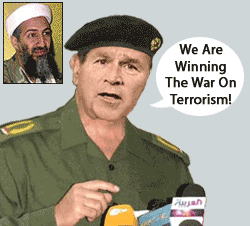
Die Bush-Berater reagierten schnell. Sprecher McClellan hielt Brown und seinen Demokraten-Kollegen eine Schmutzkampagne vor. Sie würden "mit politischem Müll" um sich werfen: "Solchen Dreck erwartet man normalerweise in den letzten Wahlkampftagen, nicht aber schon neun Monate vorher." Patient Bush saß auf dem Stuhl Jetzt muss selbst Bushs Gebiss im Nationalgarden-Streit als Entlastungsmaterial herhalten. Per E-Mail veröffentlichte das Weiße Haus ein zahnärztliches Gutachten vom Januar 1973. Dieses soll dokumentieren, dass sich der Präsident damals tatsächlich auf einem Stützpunkt der Garde aufhielt; und zwar in Montgomery im US-Staat Alabama. Bush war da! Auf jeden Fall als Patient auf dem Behandlungsstuhl. Auch ein ehemaliger Offizier in der Nationalgarde, John B. Calhoun, will sich mittlerweile daran erinnern, den damaligen Oberleutnant Bush 1972 "vier- bis sechsmal beim Wochenenddienst" in Alabama gesehen zu haben: "Ich habe ihn gefragt, ob er später mal Politiker werden will wie sein Vater", erinnerte sich Calhoun im CNN-Interview. Bush habe darauf geantwortet: "Keine Ahnung, wahrscheinlich." Überraschend Dokumente veröffentlicht In der Nacht zum Samstag veröffentlichte das Weiße Haus überraschend um die 400 weitere Seiten an Dokumenten und Belegen aus Bushs Dienstzeit bei der Nationalgarde in Alabama und Texas. Sie sollen die Jahre 1968 bis 1973 komplett abdecken. Der Präsident hatte die Freigabe selbst angeordnet: "Wir haben nichts zu verbergen", betonte ein Sprecher. Doch auch die neuen Beweise sind lückenhaft, meldet CNN, insbesondere zwischen Mai 1972 und Mai 1973. In dieser Zeit hatte sich Bush von Texas nach Alabama versetzen lassen, um dort einem alten Freund der Familie, Winton Blount, beim Wahlkampf für den Senat zu helfen. Retourkutsche in Richtung Kerry Mittlerweile holen Bushs Wahlkampfstrategen auch im Internet zum Angriff gegen Kerry aus. Auf ihrer Kampagnen-Webseite halten sie dem 60-Jährigen, der sich gerne als "Mann des ganzen Volkes" präsentiert, in einem Werbespot vor, er habe als Senator Hunderttausende von Dollars an Wahlkampfspenden von Unternehmen, Lobbyisten und anderen Interessengruppen erhalten. Genau denselben Vorwurf hatte Kerry zuvor gegen den US-Präsidenten erhoben. Jetzt heißt es in der Retourkutsche unter Berufung auf entsprechende Spendenquittungen: "Kerry hat mehr Interessen-Gelder angenommen, als jeder andere Senator." Schlachtfeld Sicherheitspolitik Inwieweit solche Gefechte den Wahlkampf beeinflussen, bleibt abzuwarten. Experten gehen davon aus, dass weder Kerry's Vietnam-Vergangenheit, noch Bushs Dienst bei der Nationalgarde oder Spendengelder eine entscheidende Rolle spielen werden. "Das Hauptschlachtfeld der diesjährigen Präsidentenwahlen ist die Sicherheitspolitik", glaubt auch US-Meinungsforscher Dick Morris, der bereits Wahlkampfberater von Bill Clinton war: "Allein daran wird sich entscheiden, wer das Weiße Haus gewinnt." Es wird eine lange Schlacht werden bis zum Wahltag am 2. November. Viel kann bis dahin noch passieren. Der Präsident hofft in diesem Jahr auf über zweieinhalb Millionen neue Jobs. Auch Osama bin Laden, so heißt es aus dem Pentagon, könnte bald gefunden werden. Und vielleicht doch noch die eine oder andere Bio- und Chemie-Waffe in Irak. Das alles wären wichtige Pluspunkte für Bush, der fast 200 Millionen Dollar in seiner Wahlkampfkasse hat. Kerry dagegen muss vor allem Falltüren vermeiden. Etwa bei der Debatte um Homosexuellen-Ehen. Ein falsches Wort kann fatale Folgen haben. Der Gegner schläft nicht. ms:Da hätte ich noch ein paar andere Bemerkungen, die der wahre Grund sein dürften, warum Colin Powell so nervös auf dieses dunkle Kapitel des Amerikanischen Diktators reagiert. Der Joint, an dem Bill Clinton mal gezogen aber nicht inhalliert hat, ist eine Bagatelle im Vergleich zu dem was unser ehrenwerter Besatzer des Weissen Hauses in seiner Vergangenheit zu verstecken hat. So ist die Rede von einem Flugtripp mit einem Bruder,um schnell 2 Kilo Kokain für eine Party zu beschaffen. Hier steckt der Achillesvers von Colin Powell. www.toostupidtobepresident.com Er muss es wissen. Und dies ist auch der Grund, warum der gute alte George W. Bush seinerzeit nicht die neu eingeführten Drogentests machen wollte und dem physical test unerlaubterweise fernblieb. Was ist schon ein AWOL oder Alkoholiker im Vergleich zu einem Drogensüchtigen? Erinnern wir uns deshalb hier doch einmal an die erste Amtshandlung dieses Saubermanns. Er liess ohne Verzögerung alle Akten aus der Zeit seines Vaters und Ronald Reagan schreddern. Handelt so jemand, der nichts zu verstecken, resp. keinen Dreck am Stecken hat? Beinahe anmutend wirkt es dann, wenn man aus noch älteren Unterlagen plötzlich Payrolls ohne Beträge und Zahnarztkonsultationen hervorzaubert. Aus verlässlichen Quellen ist zu entnehmen, dass das Militärdossier von George W. Bush bereits 1997 gesäubert wurde. Dieser Herr ist so tief im Sumpf der Verbrechen und dunklen Machenschaften, dass er nichts so fest fürchtet, wie die Wahrheit. Und an der rumzumanipulieren ist er seit seinem Amtsantritt daran. Bisher traf noch nichts von dem, was er prophezeit hat, ausser dass er Saddam festnehmen werde auch wirklich ein. Leider ist aber auch da mit dem Zeitplan eher auf eine Fälschung zu schliessen. Geniesse jeden Tag Deiner momentanen Stellung, wie wenn es Dein Letzter wäre, Du bist nun wirklich ein Kriegs-Präsident, zum ersten Mal in Deinem Leben sogar ein Krieger und es kann jeden Moment vorbei sein, nicht nur mit dem Herren-Leben als Präsident, sondern auch als lebender Mensch auf dieser Erde. May god bless you, ex AWOL, alcohol- & drug addict and last but not least president of the United States of America. Das Ziel eines jeden guten Präsidenten sollte es sein, das Volk hinter sich zu vereinen. Diesbezüglich hat Bush genau das Gegenteil erreicht und steht vor dem selben Scherbenhaufen eines gespaltenen Amerikas, wie seinerzeit vor den Sezessionskriegen, zu seinem Pech aber auf der Seite der damaligen Verlierer, der Südstaaten, die heute noch gern die Sklaverei in Form von Bürgern 2. Klasse ohne Sozialstaat hätten.
... Link marcosolo, 14. Februar 2004 um 15:31:04 MEZ Bush sagt zum 11. September aus Hektisch versucht US-Präsident Bush, alle Feuer um ihn herum auszutreten. Erst gab er seine Militärakten frei, dann stimmte er einer Befragung durch eine Kommission zu, die möglichen Fehlern der Regierung vor dem 11. September nachgeht. Dort allerdings will er unter Ausschluss der Öffentlichkeit aussagen. Washington - Am Freitagabend konnte bei den Reporter der White House-Press keine echte Wochenendstimmung aufkommen. Gegen 18 Uhr gaben die Vertrauten von George W. Bush überraschend die Akten aus der Militärzeit des Präsidenten frei. Kurz darauf, gegen 19 Uhr, meldete sich das Weiße Haus erneut - diesmal per E-Mail. In der kurzen Mitteilung war Erstaunliches zu lesen: George W. Bush will freiwillig vor der amerikanischen Untersuchungskommission zu den Terroranschlägen vom 11. September 2001 aussagen. Das Gremium unter der Führung des ehemaligen republikanischen Gouverneurs Thomas H. Kean sucht im Auftrag der Regierung nach deren möglichen Fehlern bei der Vermeidung der Terror-Anschläge vom 11. September. Neben Bush wollen die Mitglieder auch Vize-Präsident Dick Cheney und Ex-Präsident Bill Clinton hören. Die Offenheit hat allerdings auch ihre Grenzen. Zunächst will Bush lediglich mit den beiden Vorsitzenden der Kommission reden und keine öffentliche Aussage tätigen. Beobachter gehen davon aus, dass es auch in Zukunft zu keiner öffentlichen Vernehmung kommen wird, da die Aussagen Bushs viele geheime Erkenntnisse und Details aus der Sicherheitsstruktur enthalten werden. Auch auf eine Vereidigung Bushs wird das Gremium eher verzichten. Gleichwohl bietet Bushs Einverständnis zur Kommissionsbefragung erstmals die Gelegenheit, ins Innere der US-Machtzentrale zu blicken. Auch wenn die Aussagen Bushs nicht en detail öffentlich werden, erwarten sich Beobachter doch einige neue Erkenntnisse in dem Abschlussbericht der Kommission. Der Präsident wird auch zu den zu Warnungen vor Flugzeugattacken durch die Terror-Organisation al-Qaida befragt werden, die Anfang August 2001 bei ihm eingingen. Erstaunlich ist die Geschwindigkeit, mit der das Bush-Team einer Befragung zustimmte. So war die Bitte der Kommission um ein Gespräch mit Bush erst am Nachmittag im Weißen Haus eingegangen. Nur wenige Stunden vergingen bis zur Antwort. Die Eile ist bezeichnend für die Nervosität im Weißen Haus. Nach der Irakkriegs-Lüge und der ungeklärten Militärzeit Bushs befindet sich der Präsident in einer ernsthaften Glaubwürdigkeitskrise. Mit Hochdruck versucht er nun, alle Vorwürfe gegen ihn zu entschärfen. Ziel der Strategie ist: Dem Gegner keine Zeit für Spekulationen oder Kritik zu geben. Ein deutliches Zeichen dafür auch, dass die heiße Phase des Wahlkampfs angebrochen ist. ... Link marcosolo, 12. Februar 2004 um 22:50:17 MEZ George W. Bush's Lost Year in 1972 Alabama By Glynn Wilson BIRMINGHAM, Ala., Feb. 2 (PS) - The result of an investigation into George W. Bush's lost year in 1972 reveals a cocky privileged son who used his family connections to avoid military service in Vietnam and spend seven months in Alabama partying. He clearly skipped out on National Guard duty and avoided a mandatory drug test, all while learning the politics of "dirty tricks," deception and coded racism in the land of George Wallace. It was the year Wallace, the spunky Alabama governor and presidential candidate, was gunned down in a Maryland parking lot, the year of the Watergate break in and the beginning of the end for "Tricky Dick" Nixon. It was also the last year for segregationists to openly fight integration of the public schools, a time when racism went underground in American politics in the form of a "Dixie Strategy." And it was the beginning of a major political realignment that transformed the American South from a one-party Democratic stronghold into a solid block for the GOP. Bush made the move to Alabama in May to work on Winton "Red" Blount's campaign for the U.S. Senate against Southern Democrat John Sparkman. The lessons of that year were not lost on Bush or his political adviser Karl Rove, who also cut his political teeth in 1972. Their path to electoral success is a lesson in itself about the state of American Democracy, an issue suitable for an H.L. Mencken-style analysis. Privileged Son Those who encountered Bush in Alabama remember him as an affable social drinker who acted younger than his 26 years. Referred to as George Bush, Jr. by newspapers in those days, sources say he also tended to show up late every day, around noon or one, at Blount's campaign headquarters in Montgomery. They say Bush would prop his cowboy boots on a desk and brag about how much he drank the night before. They also remember Bush's stories about how the New Haven, Connecticut police always let him go, after he told them his name, when they stopped him "all the time" for driving drunk as a student at Yale in the late 1960s. Bush told this story to others working in the campaign "what seemed like a hundred times," says Red Blount's nephew C. Murphy Archibald, now an attorney in Charlotte, N.C., who also worked on the Blount campaign and said he had "vivid memories" of that time. "He would laugh uproariously as though there was something funny about this. To me, that was pretty memorable, because here he is, a number of years out of college, talking about this to people he doesn't know," Archibald said. "He just struck me as a guy who really had an idea of himself as very much a child of privilege, that he wasn't operating by the same rules." During this period Bush often socialized with the young ladies of Huntington College, located in the Old Cloverdale historic neighborhood where he stayed. Bush even dated Nixon's daughter Tricia in the early 1970s, according to newspaper accounts. Bush was described as "young and personable" by the Montgomery Independent society columnist, and seen dancing at the Whitley Hotel on election night November 7 with "the blonde, pretty Emily Marks." During the 2000 campaign, the Boston Globe named Marks as one of Bush's former girlfriends. But she and several other women who dated him during that time refused to say anything bad on the record about Bush, now a sitting president. Many of those who came into close contact with Bush say he liked to drink beer and Jim Beam whiskey, and to eat fist-fulls of peanuts, and Executive burgers, at the Cloverdale Grill. They also say he liked to sneak out back for a joint of marijuana or into the head for a line of cocaine. The newspapers that year are full of stories about the scourges of cocaine and heroin making their way into the U.S. from abroad in the early days of the so-called "war on drugs." According to Cathy Donelson, a daughter of old Montgomery but one of the toughest investigative reporters to work for newspapers in Alabama over the years, the 1960s came to Old Cloverdale in the early 1970s about the time of Bush's arrival. "We did a lot of drugs in those days," she said. "The 1970s are a blur." The top radio hits in 1972 included "My Ding-A-Ling" by Chuck Berry, "Honky Cat" by Elton John, "Long Cool Woman" by the Hollies and "Feeling Alright" by Joe Cocker, along with "I Am Woman" by Helen Reddy, "Heart of Gold" by Neil Young, "Ben" by Michael Jackson and "Black and White" by Three Dog Night. It was that kind of year. To "Blount's Belles," a group of young Republican women and Montgomery debutantes working for the Blount campaign, Bush is remembered showing up in "denim" and cowboy boots. To one who talked about those times but requested anonymity, "We thought he was to die for." Winton Bount's son Tom, an accomplished architect who designed the Shakespeare Festival Theater in Montgomery, remembers well his encounter with Bush. He recently co-produced and underwrote a telling movie called The Trip, set in the period from 1973 to the early 1980s, about a young gay Texan and his conservative Republican lover. The son known as "Tommy" said he ended up in the same car with Bush, with Bush driving, on election night. "He was an attractive person, kind of a 'frat boy,'" Blount said. "I didn't like him." He remembers thinking to himself, "This guy thinks he is such a cuntsman, God's gift to women," he said. "He was all duded up in his cowboy boots. It was sort of annoying seeing all these people who thought they were hot shit just because they were from Texas." Bush also made an impression on the "Blue-Haired Platoon," a group of older Republican Women working for Blount. Behind his back they called him "the Texas soufflé," Archibald said, because he was "all puffed up and full of hot air." Archibald was recruited by Blount's Washington staff for his administrative skills after returning home from a tour of duty as a lieutenant in Vietnam. Failure of Duty Bush avoided Vietnam by using family connections to move ahead in line for acceptance into the National Guard in Texas, where he was assigned to train as a pilot on the F-102 Delta Dagger, a plane the military had schedule for the scrap heap. It never made it into service during Vietnam, which guaranteed Bush would never have to go himself. That May, Bush first requested a transfer from his Texas unit to the 9921st Air Reserve Squadron at Maxwell Air Force Base, a postal unit, after he had already moved to Alabama to work on Blount's campaign. The transfer was approved by his superiors in Houston, after the fact, but ultimately denied up the chain of command, since the unit only met one weekend night a month and had no airplanes. Bush was finally approved for a transfer on Sept. 5, five months after he had already established a residence in Alabama, to the 187th Tactical Reconnaissance Group in Montgomery. His orders, available on the Net, required him to report to the unit commander, Gen. William Turnipseed. He is named in the orders. In interviews with the Boston Globe in 2000, Turnipseed and his administrative officer in 1972, Kenneth K. Lott, said they had no memory of Bush ever reporting, and could produce no documentation that he ever even checked in. ''Had he reported in, I would have had some recall, and I do not,'' Turnipseed said. ''I had been in Texas, done my flight training there. If we had had a first lieutenant from Texas, I would have remembered.'' In a follow-up interview, Turnipseed acted like he wished the story would go away, but said, "Yes, I think I would have remembered." Rewards offered by veterans groups in Alabama and Texas for any proof that Bush showed up have never been claimed. There were 700 active guardsmen in Alabama at that time and not one who saw him on the base has come forward. Even an extensive investigation by the president's campaign staff could not turn up a shred of evidence that Bush pulled any duty, according to newspaper accounts. Perhaps the reason he didn't log any time toward his six-year commitment was because the base had no Delta Daggers, although that would not explain why he was granted an after-the-fact transfer there in the first place. Or perhaps it had something to do with the military's new policy of mandatory drug screening, implemented in April. Bush's required physical exam officially came up in August due to his birth date, but records indicate he never showed up for a physical in Montgomery or when he returned to Houston after the election. Bush was never punished for skirting Guard requirements, even though the military had passed a rule in in 1969 warning volunteers that failure to fulfill the contract would result in immediate selection for active duty in Vietnam. For not taking a physical, though, he was grounded that August and never flew again, records show, until last year when he reportedly says he took the "stick" in a Navy plane on his way to declare "mission accomplished" over Iraq on the U.S.S. Abraham Lincoln. The gap in Bush's military records for 1972, and his lack of a full answer to the question about his drug use, generated stories during the 2000 campaign. Bush refused for months to say whether he had ever used illegal drugs. Then he changed his stance, according to the Boston Globe, saying he had not used illegal drugs "since 1974." Two books now contain the charge that Bush was arrested for possession of cocaine in 1972 in Texas, most likely in late November or December after his stint in Alabama. Bush was allowed to perform community service in 1973 by working for a minority children's program in Houston, Professionals United for Leadership League (PULL), chaired by his father. The record of that arrest was expunged, meaning he apparently received the equivalent of Youthful Offender status at the age of 26. There are several possible interpretations of whether Bush can be called AWOL during that period, or even a Deserter. Activist film maker Michael Moore's claim that George W. Bush was a Deserter when he skipped out on National Guard duty in 1972 is one interpretation, but is not entirely based on the facts or a correct interpretation of military regulations. According to the Uniform Code of Military Justice, a soldier would be considered Absent Without Leave (AWOL) if missing from his unit for 30 days or less. If absent for more than 30 days, a soldier would be considered a Deserter, if he had "no intention of returning." But Bush's superiors, at least in Houston, knew where he was. He did come back and received an honorable discharge. Moore's claim was dodged by Democratic candidate for president Wesley Clark during a New Hampshire debate on Fox News in January, in response to pointed questions by Peter Jennings of ABC and Britt Hume of Fox in response to Moore's endorsement of Clark the previous week. The debate about whether Bush was AWOL, as the Boston Globe reported, or deserves Deserter status, as claimed by Moore, may be missing the point. It may be more accurate to say that while Bush was not technically AWOL or a Deserter, he was allowed to do things no average member of the National Guard would ever be allowed to do. Any other member of the Guard, without Bush's family connections, would be expected to wait until a transfer approval went through before leaving town, much less moving four states away to work for a political campaign. Also, the military does not usually grant transfers to soldiers to units that have a purpose with no resemblance to their training. So the point is, Bush is no military hero. He is no Wesley Clark, or John Kerry, both of whom earned purple hearts and other medals for being injured in the line of duty. Dirty Tricks It is also apparent that Bush learned one of his first lessons in the politics of "dirty tricks," deception and coded racism in 1972. It was the biggest year for "Tricky Dick" style dirty tricks in American politics. A group of Cubans working secretly for the Committee to Reelect the President, otherwise known as CREEP, broke into the Democratic Party headquarters at the Watergate Hotel in Washington on June 17. Just prior to the day on May 15 when Alabama Governor and presidential candidate George Wallace took a bullet in a Maryland parking lot - a shock but a political relief for President Richard Nixon and Democratic candidate George McGovern in a race for the White House themselves - Bush was recruited for the Blount campaign by another Texan and Bush family friend named Jimmy Allison. In several documented accounts, Allison is described as the original Republican political pro who may have inspired Lee Atwater, Ronald Reagan's gung-ho political director, and Karl Rove, who is credited with orchestrating Bush's successful run for the White House in 2000. Atwater and Rove are reported to have taken a drive together across the South in 1972 campaigning for Rove's bid to lead the College Republicans, so it is safe to say they cut their political teeth that year as well as Bush. Rove won that bid and dropped out of the University of Utah, then moved to Washington to become executive director of the College Republicans, even though he was accused of dirty tricks during that campaign. The Republican National Committee, chaired at that time by Bush's father, investigated but eventually cleared Rove of any wrong doing, even though Rove admitted using a false identity to gain entry to the campaign offices of Illinois Democrat Alan Dixon. He admitted stealing letterhead stationary and sending out 1,000 fake invitations to the campaign headquarters opening, promising "free beer, free food, girls and a good time for nothing." Allison had managed the senior Bush's campaigns for Congress and served as vice chairman of the Republican National Committee. Archibald remembers being impressed with the "Allisons," thinking he would see more of Jimmy and his wife in the future, certainly more than Bush. "Allison was extremely bright and a well organized political operative," he said. Archibald remembers one speech Allison delivered to the campaign staff and a group of British students. He said Allison talked about Wallace's domination of state politics since his first election as governor in 1962, and his "racist appeal." Some in the campaign were hoping to portray Blount as a pro-business moderate, Archibald said. But Tom Blount remembers his dad, who died two years ago, having regrets about the dirty campaign tactics. Dividing people by coded racism became a staple of the Southern Strategy leading up to Willie Horton ads used successfully by the first Bush against Michael Dukakis in 1988, and the junior Bush's smear campaign against Sen. John McCain's interracial child during the 2000 Republican primary. One of Bush's duties as "campaign coordinator," according to his official title in the newspapers, was to stay in contact by phone with campaign managers in Alabama's 67 counties, and to handle the distribution of all campaign materials, Archibald says. That material included a pamphlet accusing Sparkman of being soft on the race issue. It also included a doctored tape from a radio debate distorting Sparkman's position on busing. Sparkman was forced to deny a series of false charges linking him with McGovern, the South Dakota presidential candidate who became the first in the modern era to be tainted and stomped as a "liberal." The pamphlet distributed to campaign workers and leaked to the press charged Sparkman with favoring drastic defense cuts, big federal spending, abandoning American POWs in Vietnam, a guaranteed wage for every American, relaxing drug laws, amnesty for draft dodgers and "forced busing." The Birmingham News ran the transcript of the doctored radio tape on November 6, the day before the election, which made it appear Sparkman was in favor of busing black and white children miles across towns to "mix" the public schools. The literature of the campaign echoed the winning conservative Senate race of Ed Gurney in Florida, also dreamed up by Allison and company. Blount's campaign, awash in cash with twice the money of Sparkman's, paid for billboards across the state proclaiming: "A vote for Red Blount is a vote against forced busing . . . against coddling criminals . . . against welfare freeloaders." Sparkman was a moderate on the race issue compared to Wallace, and got the support of African Americans who only had the right to vote for seven years. But he not only voted for the anti-forced busing bill. He co-sponsored it and spoke against busing on the Senate floor. The measure, which would have blocked busing and killed desegregation for all practical purposes, died a few weeks later when the Republicans and Southern Democrats in the Senate could not garner enough votes for cloture. It was the last gasp on the part of segregationists to prevent the federal courts from enforcing desegregation of the public schools, a fight that started in earnest with the 1954 Supreme Court decision in Brown v. (Topeka, Kansas) Board of Education. Archibald says Allison called him aside and asked him quietly to take over some of Bush's campaign duties, so he ended up handling the Republican women and the counties in the final days of the campaign. Apparently Bush was more interested in hanging out with "Blount's Belles." Some of the women, young and old, came from Union Springs, where Archibald grew up in the enviable position of being the nephew of Blount, also originally from Union Springs, just a short drive southeast of Montgomery. It is a land of rolling hills, lakes, forests and wide cow pastures, where the mostly African American population of Bullock County is largely made up of descendents of slaves, and a few slave owners. Little white churches are almost as common as white-tailed deer on the run from hunters in camouflage and bright orange. During the past century, pine plantations for paper and wood products replaced cotton as the chief agricultural crop. Blount's construction and manufacturing empire prospered in the new industrial economy here. The first big construction deal for Blount Brother's construction was signed with the Saudi government. On one occasion Archibald's uncle banked a check for $334 million to build a university in Saudi Arabia. The check is on display in Blount's ghostwritten biography in the Shakespeare theater box office and gift shop on Vaughn Road. In the caption, Blount brags about how he rushed the check into the bank to get that $200,000 a day in interest flowing "as quickly as possible." Winton Blount IV now carries on the family tradition, according to newspaper accounts, subcontracting for the likes of Halliburton and Bechtel in Saudi Arabia and Iraq today. The "interlocking directorates" of the Bush family, their friends and this administration is documented by conservative Republican author Kevin Phillips in his book American Dynasty, although he doesn't deal with the Blount connection in detail. George H. W. Bush and Winton Blount met and became tight in Washington during the Nixon years, according to published accounts, when they were sometimes invited by the White House to play doubles together on the south lawn tennis court. Blount had served as southeastern campaign chair for Nixon in his run against John Kennedy in 1960. He served as president of the U.S. Chamber of Commerce in 1969 before accepting Nixon's appointment as Postmaster General in 1970, where he generated a major national controversy by laying off 33,000 postal workers. He quit that job to run for office and try to help capture the Senate for the Republican Party in 1972, but lost by a 24-point margin, in spite of the political pros from Texas, and the deceptive campaign practices. Nixon appointed Bush's daddy Ambassador to the United Nations in 1972, a well publicized fact that was known to campaign workers and Guard personnel in Alabama. He would be appointed by President Gerald Ford as head of the CIA in 1976 and go on to serve as Ronald Reagan's vice president, then as president in his own right for one term. Bush Jr's. granddaddy Prescott Bush was a successful industrialist from Kennebunkport, Maine, who served as a U.S. Senator. Since leaving public office, the former President Bush now sits on the board of the Carlyle Group, which has been accused of profiteering off the war his son started, doing business with Saudi Arabia, Iraq and other oil-rich countries in the Middle East. It is worth noting in this context that several members of Osama bin Laden's family from Saudi Arabia were onboard the only plane allowed to fly out of the country after the attacks on the World Trade Center and the Pentagon on September 11, 2001, an incident that has never been adequately explained by the Bush administration or the commission investigating the attacks. All of these connections and events have weighed heavily on the mind of retired attorney Lewis Odom, a veteran himself who managed Senator Sparkman's winning campaign in 1972. He was Allison's counterpart, though he never met Bush personally during the campaign. But he does remember being aware of a group of political pros from Texas in Alabama working for Blount, and being appalled at the deceptions of the campaign. Odom, who served as a JAG officer in Korea and as a member of the Alabama Air National Guard, only learned later that Bush was in the state working for Blount while skipping out on Vietnam and his Guard duties. But he remembers the radio tape and transcript. "It was doctored to make it appear as if Sparkman was in favor of forced-busing, which in Alabama at the time was political death," he said. Odom said the Bush campaign has tried to dismiss the president's early transgressions since they happened so long ago, although he points out that Bill Clinton did not get a "free ride" on the issue of his own history as a so-called "draft dodger" and "womanizer," even impeached in his second term. Why is Bush's past important to examine now? "It seems to me to be important because Bush is willing to send our boys and girls over there to get shot, killed and wounded, to lose their arms and legs," Odom said. "Then in his own life, he did what he could to avoid it (going to war). And then later, he presents himself as a fighter pilot, parading around on that flight deck with his fighter pilot jacket on with 'Commander In Chief'' on it." Odom said the Guard probably spent a half a million dollars training Bush, then he wouldn't even take his flight exam and failed to check the box on the form making himself available for active duty. Later, Bush was transferred on paper to a Guard unit in Colorado prior to his early release to attend Harvard Business School. "I see him out parading around as if he was some sort of a military hero, when the truth about the matter is, he used his father's prestige in the community to get into the Guard in the first place," Odom said. "And then he used it to get himself transferred to Alabama to work on a political campaign." State of Democracy Many Americans, including Odom and a lot of combat veterans, wonder how things might have been handled differently if only Bush had served real time in the military and not skated because of his privileged son status. Would he have been as likely to go to war in Iraq so quickly and on such flimsy evidence, bringing the world to the brink of an all out religious war between Christians and Jews against the Muslim world and turning much of Europe and the rest of the world against the U.S.? That is a question that cannot be answered in hindsight. But in a democracy, it is not supposed to matter what bloodline you come from or what religion you practice. What should matter - to a candidate for the highest office in the most powerful country in the world - is the quality of his life, work and character. What does Bush's success say about the state of American Democracy? The Bush White House openly promotes democracy around the world, committing the full force of American military power to try creating a capitalist democracy in Iraq. Yet Bush's entire history of success fosters the mentality of a Royal Monarchy at home. ... Link |
online for 8511 Days
last updated: 15.12.12, 03:58  Youre not logged in ... Login

  |
||||||||||||||||||||||||||||||||||||||||||||||||||||||||||||||||||

View My Guestbook
Sign My Guestbook
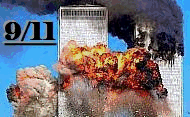



marcosolo's 
|
marcosolo  webradio statistics webradio statistics |
Nord- Motorrad-trips in Nord Thailand Motorrad-trips in Nord Thailand
|









